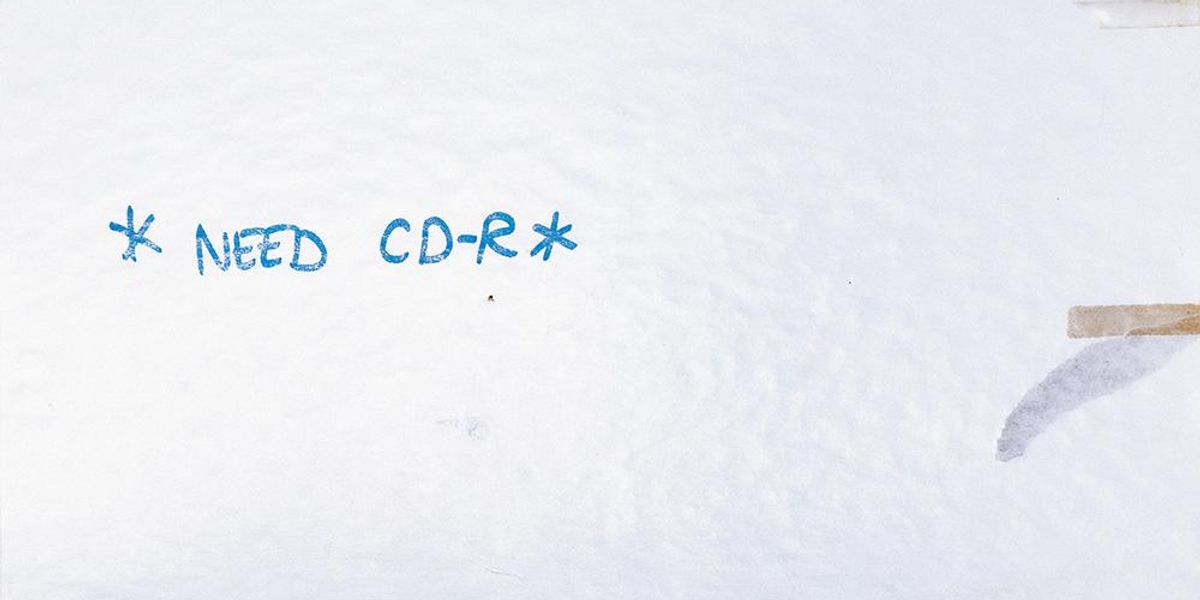It will take a pair or two of solid elephant’s ears to hear the microscopic distinctions between Slint’s Spiderland, post-rock’s mighty Rosetta Stone, and the 1990 “alternate” mixes of two of its songs released 12 February as a limited 12-inch EP – and, for the unknown legions of Slint followers, that really doesn’t matter one iota.
For those of you just joining the program, Slint were a dramatically understated but highly influential Louisville quartet that broke up after their sophomore album, Spiderland, was recorded but before Touch and Go Records released the LP in 1991. The group’s whisper-driven legend and the record’s bizarre iconography have grown by leaps and bounds in the decades since. (Yes, that’s a bit of an understatement.) The hypnotic, oddly syncopated, and opaque song-stories paved the way for Rodan, Mogwai, and even Sigur Rós. Core members tried to relight the fire a couple of times in the 1990s (no luck) and reunited sporadically during live sets with varying publicity measures – in 2005, 2007, 2013, and 2014. But Slint’s mythos has become mountainous, somewhat larger, through their absence.
Recently, Touch and Go Records, which retired as a full-time label years ago and has been running as a kind of Midwestern indie boutique shop, has started fanning the flames again on Slint. Though the group only released one LP during their official and brief lifespan – the King Crimson-isms of 1989’s Tweez, which Touch and Go reissued in 1993 – their label of choice also released a posthumous two-song, 10-inch EP. Two decades later, they helped Slint put together an exhaustive and deliciously satisfying limited-run box set about their 1991 swan song.
A Record Store Day exclusive, the “Breadcrumb Trail” b/w “Good Morning, Captain” EP, was issued as a 12-inch record in 2020; as of this week, it now is available, if only a little more widely, on impulse-buying-approved green vinyl. In all likelihood, more people have probably heard Slint name-dropped as a reference by musicians than have actually listened to the band. For those who have heard the group, though, seeking down their various releases and such acquires a cult-like fetishism. Just ask Mr. Bangs, whose documentary Breadcrumb Trail traced the most minute details of the band’s existence and, yes, took 12 years to produce.
The new EP is good and resonates well even by 2020 or 2021 standards – the songs are aging like fine Kentucky bourbon – but that’s almost beside the point. For diehard Slint fans – and that’s the group this release targets, not the uninitiated or the passingly curious – these songs are already etched into the brain center. This recording will do little to tamper with the resident memories. That said, Bob Weston, in the production seat, did a fine job on these mixes (kudos, kudos). There’s a kind of naturalistic pop and wallop that original recording engineer Brian Paulson forsake in favor of being a little enigmatic and subtle. But that’s about as much as you can say about its de rigueur lack of revisionism. Are the backing vocals in “Breadcrumb Trail” higher in the mix? Maybe. Does the captain’s cry of “help” resonate any more deeply on the B side? It’s hard to say.
What is significant about the release – and this is where it’s worth the ink it takes to write this out – is that Slint still sound oddly relevant 30 years after Spiderland hit the streets without a tour and much fanfare. And that still means something. Britt Walford’s naturalistic drum style is driving, addictive, oddly fresh. The interplay of David Pajo’s and Brian McMahan’s glassy guitars still casts spells. Todd Brashear, no slouch, is often the unspoken glue that holds these leads together. McMahan’s intensely vulnerable voice, sometimes a roar but more often than not just a half step above a whisper, is perplexingly engaging. Yep, Slint are sounding even better as the long years go on and on. But, here’s the question: for how long will that legend reign? It’s a testament to the source material that we’re still revisiting, remixing, and re-releasing all these years and decades later. For that, we say God bless the Rosetta Stone – and may we never forget the languages it taught us.


